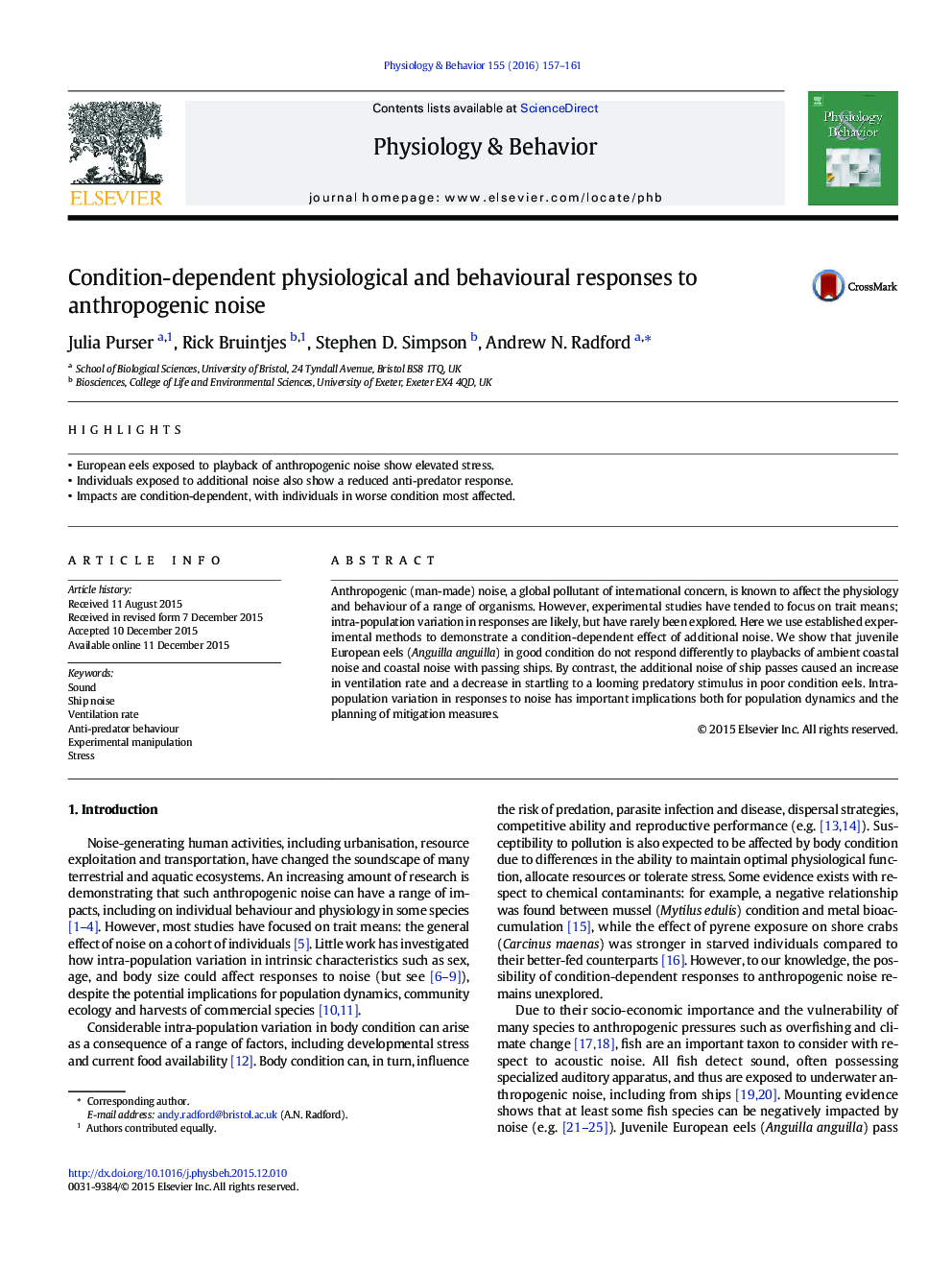| Article ID | Journal | Published Year | Pages | File Type |
|---|---|---|---|---|
| 2843981 | Physiology & Behavior | 2016 | 5 Pages |
•European eels exposed to playback of anthropogenic noise show elevated stress.•Individuals exposed to additional noise also show a reduced anti-predator response.•Impacts are condition-dependent, with individuals in worse condition most affected.
Anthropogenic (man-made) noise, a global pollutant of international concern, is known to affect the physiology and behaviour of a range of organisms. However, experimental studies have tended to focus on trait means; intra-population variation in responses are likely, but have rarely been explored. Here we use established experimental methods to demonstrate a condition-dependent effect of additional noise. We show that juvenile European eels (Anguilla anguilla) in good condition do not respond differently to playbacks of ambient coastal noise and coastal noise with passing ships. By contrast, the additional noise of ship passes caused an increase in ventilation rate and a decrease in startling to a looming predatory stimulus in poor condition eels. Intra-population variation in responses to noise has important implications both for population dynamics and the planning of mitigation measures.
